Good eveningpublished at 17:04 GMT 21 March 2017
That brings an end to today's live page coverage of Martin McGuinness' death and some of the reaction to it. You can keep up to date on BBC News NI's website.
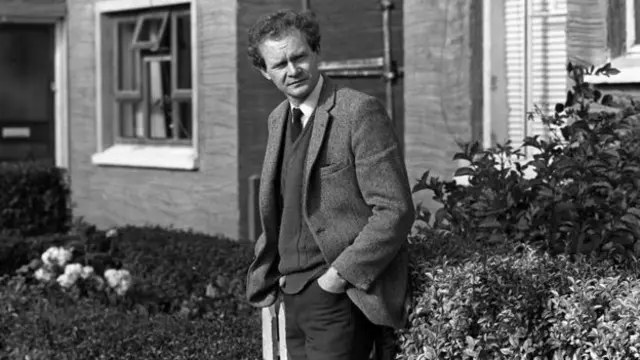 Image source, Pacemaker
Image source, PacemakerSinn Féin's Martin McGuinness has died aged 66
NI's former deputy first minister died in hospital with his family by his side
Ex-IRA leader turned peacemaker worked at the heart of the power-sharing government
He became deputy first minister in 2007, working with DUP leaders Ian Paisley, Peter Robinson and Arlene Foster
Politicians and the public have been reacting to his death
That brings an end to today's live page coverage of Martin McGuinness' death and some of the reaction to it. You can keep up to date on BBC News NI's website.
 Image source, Pacemaker
Image source, PacemakerSinn Féin President Gerry Adams and the party's northern leader Michelle O'Neill have paid tribute to Martin McGuinness.
Jim Dixon, 80, was badly injured in the Enniskillen bomb . He says Martin McGuinness was "evil" and "a murderer".
"In one way I would say good riddance, but I will weep for him because he's gone now to meet the judge of all the earth from whom no secrets are hidden.
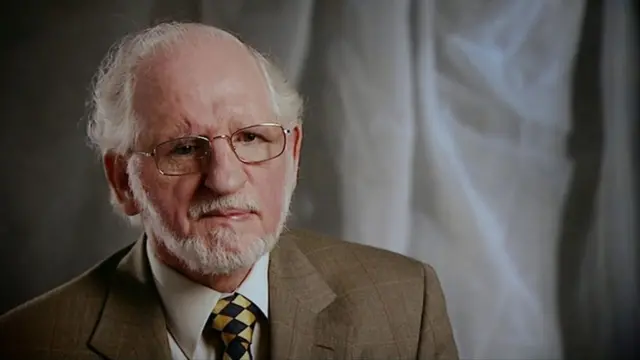
"You can't forgive someone who hasn't asked for forgiveness and nobody will get forgiveness either from God or anybody else without repenting first and asking forgiveness."
 BBC Newsnight
BBC Newsnight
"I spent a decade negotiating peace with Martin McGuinness," says Tony Blair's former chief of staff Jonathan Powell.
"The first time I met him, like most people, I saw a terrorist."
"When I left government I invited him to my leaving party as a peacemaker. And now he's gone. I think we are in danger of underestimating his contribution."
He made this report for BBC Newsnight .
Martin McGuinness: IRA leader turned peacemaker
 BBC Newsnight
BBC Newsnight
Martin McGuinness went on a long journey to get to peace from his past as an IRA leader, says Ian Paisley Jr.
Back then he was seen as "evil personified" he told BBC Newsnight .
"He was everything that every Ulsterman, and every Protestant, and every unionist both feared, loathed and hated."
"I ultimately take the view, if Martin McGuinness helped us achieve peace in Northern Ireland, do we then hate our opponents?"
"Or we end up recognising that without them, we actually couldn't have got to this place."
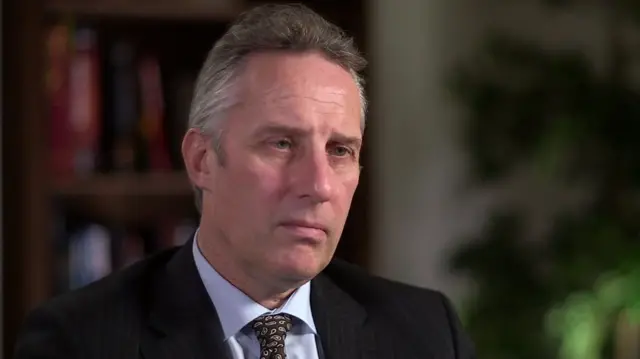
Sinn Fein's northern leader Michelle O'Neill has told a press conference she was "honoured" to know Martin McGuinness, who, she said, inspired her and "set the bar very high in terms of leadership".
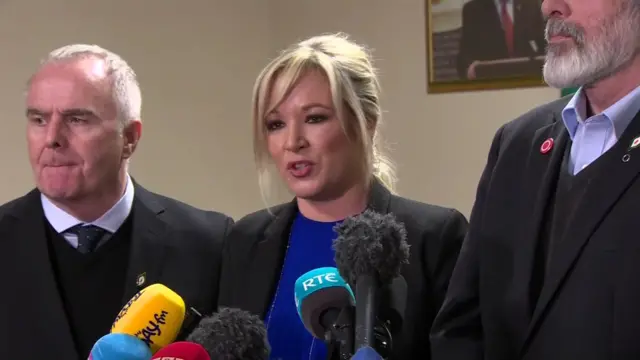
"I am very proud to call Martin McGuinness my friend and today republicans right across the island of Ireland will mourn his passing."
Former US President Bill Clinton has paid tribute to Martin McGuinness , external saying, "may he rest in peace".
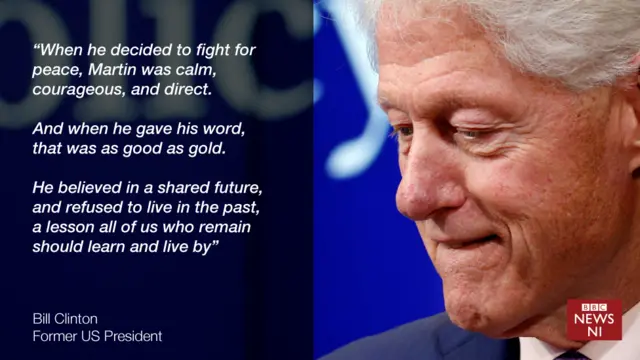
Allow X content?
This article contains content provided by X. We ask for your permission before anything is loaded, as they may be using cookies and other technologies. You may want to read X’s cookie policy, external and privacy policy, external before accepting. To view this content choose ‘accept and continue’.
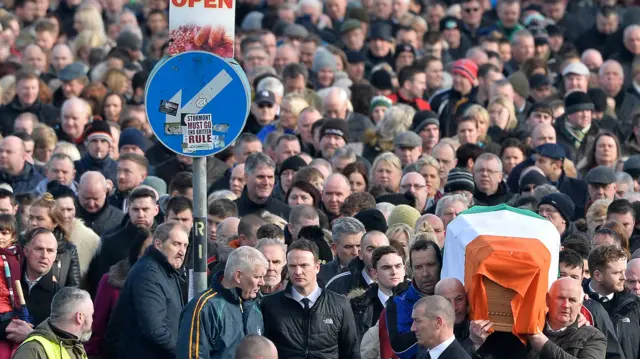 Image source, Press Eye
Image source, Press Eye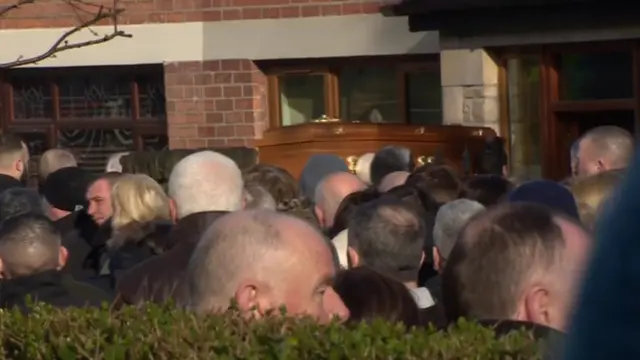
Colin Parry, whose 12-year-old son Tim died in the 1993 Warrington IRA bomb, speaks to BBC News
Vincent Kearney
BBC News NI Home Affairs Correspondent
No-one knows how many people Martin McGuinness killed, directly or indirectly.
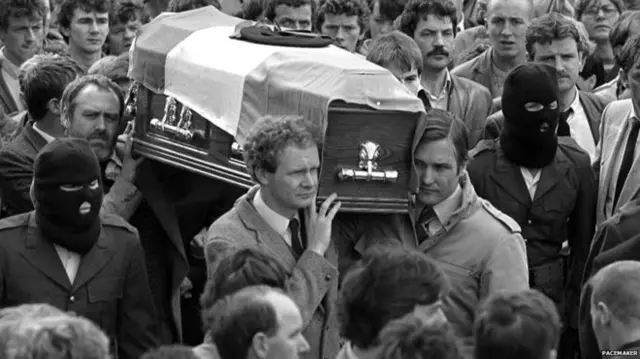 Image source, Pacemaker
Image source, PacemakerAs a senior commander within the Provisional IRA for many years, there is no doubt there was blood on his hands.
As a 24-year-old Met Police officer Pam White, now 58, was injured in the 1983 IRA bomb attack outside Harrods in London.
She said the incident "changed my life forever" and eventually ended her career at the Met.
But she has written to BBC News to say that she is still "grateful" to Martin McGuinness for his role in the peace process.
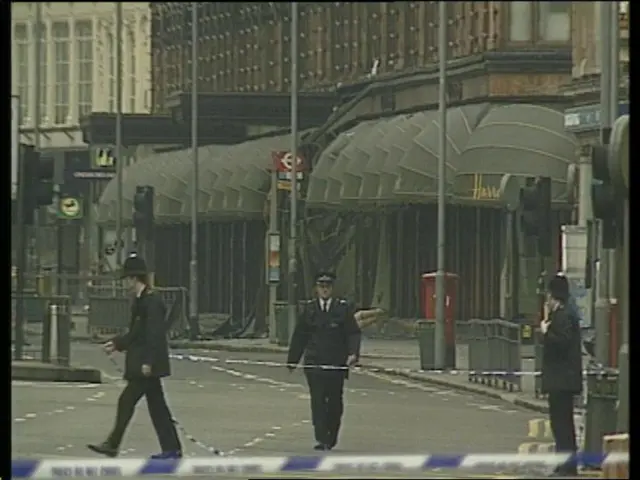 Image source, VT Freeze Frame
Image source, VT Freeze Frame"I don't feel bitter or angry," she said.
Ms White had served with the Met for three years when she was injured in the blast that killed six people.
"Police officers were the target that day," she said. "I got tinnitus and post-traumatic stress disorder".
Large crowds have gathered in the Bogside as Martin McGuinness' coffin is brought home.
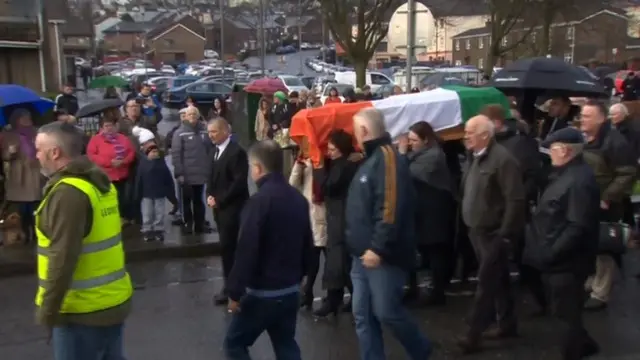
 BBC News Channel
BBC News Channel
Rev David Latimer, of First Derry Presbyterian Church, had a long-standing friendship with Martin McGuinness despite initially being on opposing sides.
"My church was really a target for attack during the Troubles," he told BBC News.
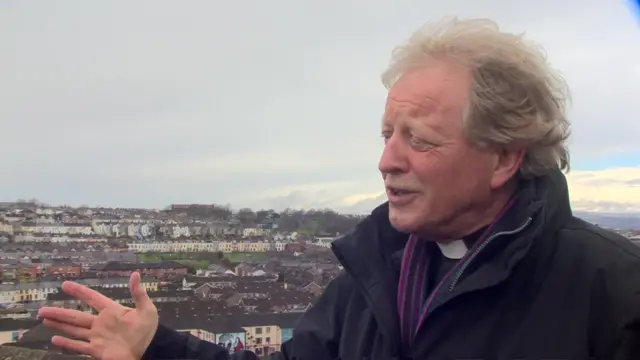
After the church was hit by paint, Rev Latimer went on local radio and named Mr McGuinness, who later asked to meet him.
"On the steps of my church Martin and I met," he said. "It wasn't easy for us".
Rev Latimer says people in his church often did not like his friendship with Mr McGuinness, but that he was " a man whose life had been changed ".
Margaret Veitch, whose parents were killed in the Enniskillen "Poppy Day" bomb, says that Martin McGuinness could never justify his IRA past.
Martin McGuinness 'entered government an unrepentant terrorist'
Commenting on the passing of Martin McGuinness, former DUP leader Peter Robinson said: "We came together in that office after the heady euphoria of reaching agreement had faded.
"The honeymoon was over and we had to work the hard yards of operating the system in a manner that would instil confidence and bring delivery.
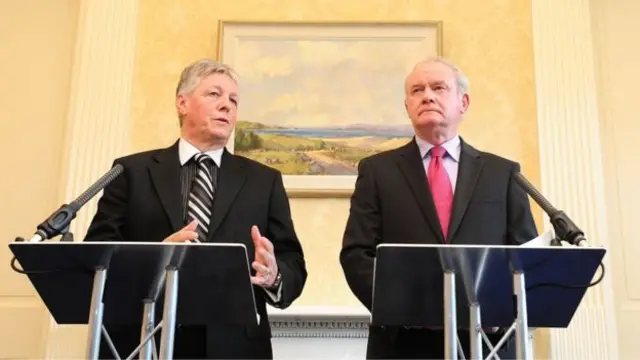 Image source, Pacmaker
Image source, Pacmaker"Yet while I knew his past, as he knew mine, we never doubted or gave up our shared commitment to create a new and better era in Northern Ireland politics.
"We had the best of personal relationships - keeping in touch even after my retirement and during his illness."
"Martin McGuinness has shown that he respected not just the mandate of his own party, but also that of the broader institutions," the former leader of the SDLP, Mark Durkan, has said.
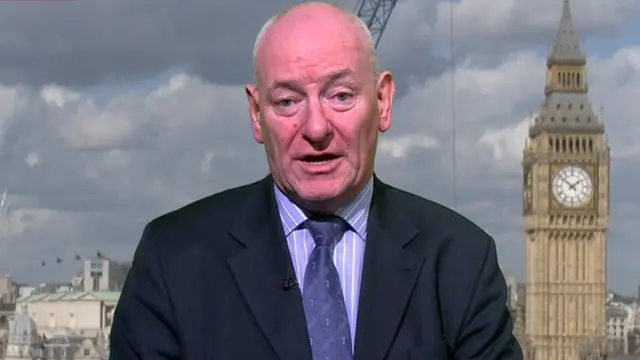
"We should try to emulate some of that ethic that Martin had."
An urgent sitting of the Northern Ireland Assembly will take place tomorrow.
Gerry Adams spoke of his last moments with Martin McGuinness during a Sinn Féin news conference in Londonderry today.
"I spoke with him last week, he was much brighter than he had been," Mr Adams said.
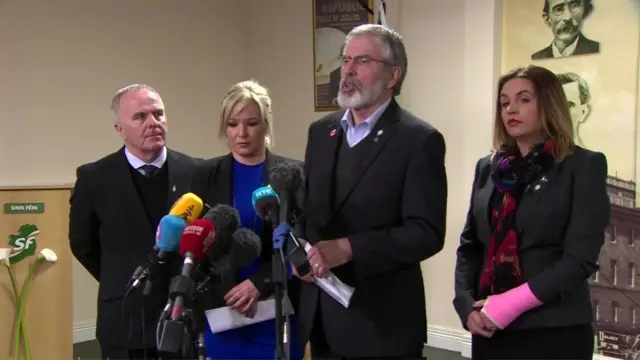
He recently gave Mr McGuinness a signed jersey from when Derry's Gaelic football team took their first and only All-Ireland victory in 1993.
"I told him: 'When you get better I'll give you this present'," he said. "I got concerned he wouldn't get better so I brought it to him".
 The World at One
The World at One
BBC Radio 4
Before the Good Friday Agreement the Conservatives, too, had been pursuing the prospect of peace with the IRA.
Sir John Major, the UK Prime Minister between 1992 and 1997, said he believed it had been "essential" to begin talks with the IRA at that time, in order "to stop the violence".
Speaking to Martha Kearney, Sir John said his government had "a link" to the IRA and through this link they received a message; asking for their advice "on how to bring the conflict to a close".
Sir John said he was "absolutely confident" that this message came from Martin McGuinness, even though Mr McGuinness denied it.